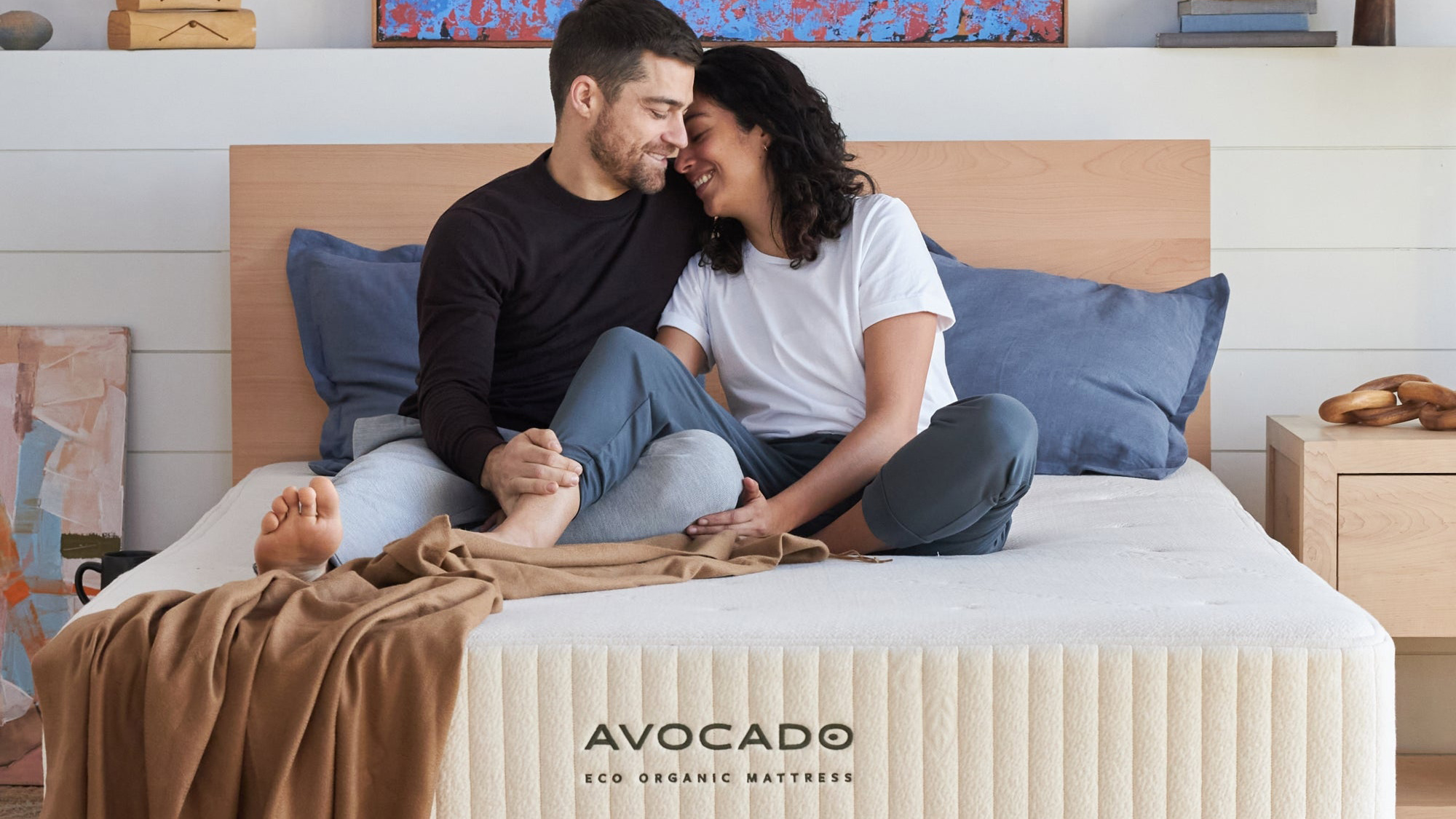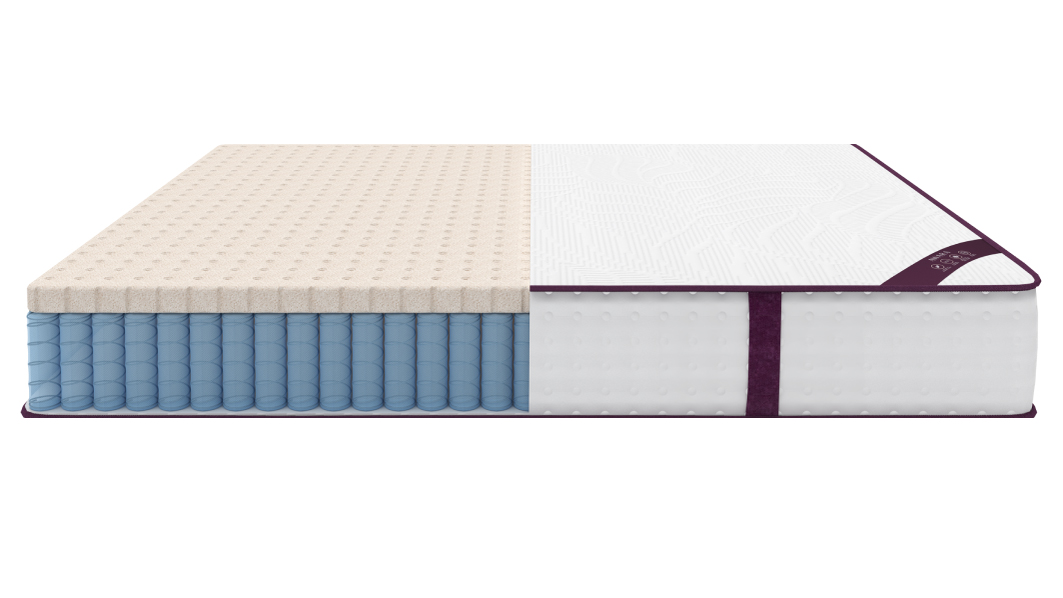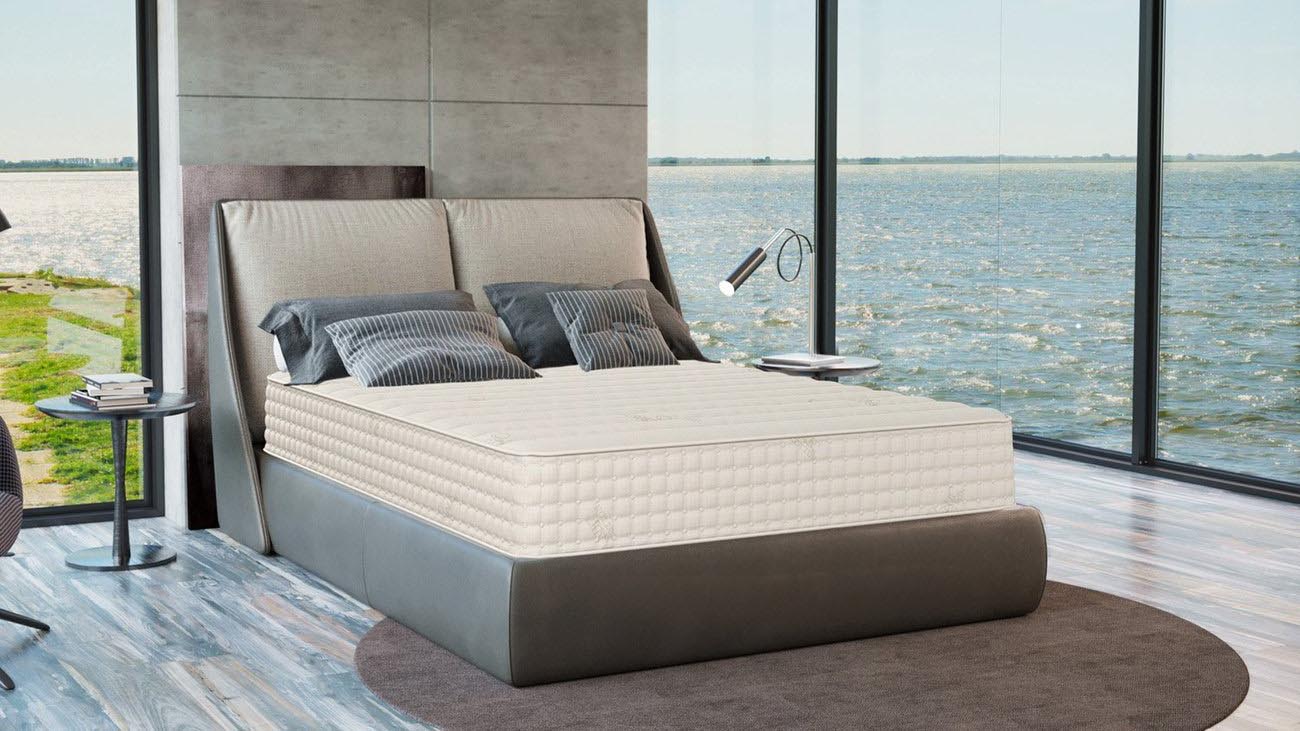What is an organic mattress and are they healthier than other beds?
All you need to know about eco-friendly, non-toxic organic mattresses

As more shoppers prioritize ethical production practices, sustainable processes and non-toxic materials over cheap, quick purchases, organic mattresses are growing in popularity.
So, if you're looking for the best mattress for your needs and you want to prioritize healthy sleep with a clear conscience, investing in a certified organic bed could be a great choice. With high-quality materials like GOTS-certified wool and cotton, GOLS-certified latex and natural fiberglass alternatives like thistle pulp, you can rest at night assured that your mattress is kind to the planet and safe for you and your family without the potential of toxins polluting the air or triggering your allergies.
The best organic mattresses are made by brands including Avocado Green, Birch and Essentia, and are free from plastics, synthetic foam and polyester. Because of this, they often cost a lot more than your standard innerspring or memory foam mattress. So is that higher price worth it? And what are the benefits of an organic mattress for your sleep? Let’s take a look…
What is an organic mattress?
The term ‘organic’ is used for mattresses that have been made with non-toxic organic and natural materials such as cotton, wool and natural latex such as Talalay and Dunlop latex.
This type of mattress doesn’t use chemicals that are harmful to the environment in the manufacturing process. Many of the materials used are also certified as Global Organic Textile Standard (GOTS) and Global Organic Latex Standard (GOLS), assuring you that the mattress is truly organic.
There's a growing number of natural mattresses hitting the market too, and while these could be mistaken for organic beds, they differ in that they use more natural materials than synthetic, but synthetic materials may still be present. You can read more about this in our feature comparing organic vs natural mattresses.

The benefits of an organic mattress include:
- They’re hypoallergenic and usually a good choice for allergies
- They’re made with naturally breathable
- They have a vastly reduced impact on the environment
- Latex mattresses last longer than any other type of bed
- They stay cool at night
- There’s no noticeable off-gassing during unboxing
How much do organic mattresses cost?
Organic mattresses are typically more expensive than standard hybrid, innerspring and memory foam mattresses. This is because of the care and attention taken to farm and sustainably source the certified organic materials, which also cost more because they have not been manufactured in the same way as bulk synthetic materials.
Organic mattresses are available in both the UK and US as both standard and mattresses in a box, with prices starting around $799 in the US with the Avocado Green Eco Organic Mattress - now the cheapest certified organic bed in America at $799 for a twin. Other manufacturers tend to be pricier, so you can expect to pay from $1,500 for an organic Saatva or Plush Beds model. However, many organic mattresses are at the premium, luxury end of pricing. For example, the Essentia Stratami is a steep $3,850 for a queen. Read our Essentia Stratami mattress review to find out if we think it's worth the price.
In the natural mattress space, brands to look at include Awara (see our Awara natural hybrid mattress review) and Birch (see our Birch Natural mattress review).
In the UK, you’ll find natural (so not necessarily fully organic) mattresses from brands including Silentnight, with prices starting from £275 for its Eco Comfort Miracoil. Wool mattresses from the Woolroom start from £524, and these are excellent at temperature regulation so a good all-rounder. Monthly mattress sales will lower prices too, and you can find these discounts online most months. We expect the upcoming Presidents' Day mattress sales to discount prices significantly.
Organic mattresses also last much longer than synthetic beds, saving you money in the long-run even though they're more expensive upfront. So that’s something to factor in when you’re considering the short term versus long-term cost.
What are organic mattresses made of?
When buying an organic mattress, it's important to look out for the materials commonly used, like organic cotton, wool and natural latex. However, in order for a mattress to be labelled ‘organic’ it needs to be certified as such.
The only way to guarantee you’re buying a genuine organic mattress is to look for globally recognized certification labels such as the Global Organic Textile Standard (GOTS) and the Global Organic Latex Standard (GOLS).
Because organic mattresses are non-synthetic, this also makes them less harmful to the environment when it comes to disposing of them, with the organic materials decomposing naturally.

All-foam organic mattresses typically feature natural latex, with moisture-wicking organic cotton covers and breathable wool layers for comfort. Here are the main materials you’ll find in an organic bed:
Cotton – this plant-derived material is breathable, making it ideal if you overheat. It’s typically used for mattress covers because it’s durable, easy to clean and long-lasting. Organic cotton is grown in rainier areas, unlike some standard cottons that use up lots of water for irrigation. Organic cotton is also grown without toxic pesticides.
Wool – This natural fiber comes from sheep fleece and provides superb cooling by wicking away moisture from the skin. And when the temperature drops it will also warm you up without making you too hot or sweaty. Wool is naturally hypoallergenic, dust-mite resistant and fire-resistant too.
Natural latex – This non-synthetic latex comes from the sap of rubber trees, unlike the synthetic and less durable latex found in cheap mattresses. Natural latex is excellent at contouring your body to cushion your pressure points. Like wool, it’s also antimicrobial, breathable and hypoallergenic. To ensure the latex is organic and sustainably sourced, look for accreditation from the Global Organic Latex Standard (GOLS), the eco-INSTITUT or Greenguard Gold.

Are organic mattresses healthier than other beds?
Organic mattresses are made with a higher volume of certified organic materials that naturally perform the jobs some synthetic materials are created to handle. For example, naturally breathable wool and bamboo versus gel-infused cooling foam. Or 100% natural Talalay latex for comfy contouring versus memory foam.
Many people believe that organic mattresses are healthier than other types, and while it's true that they are made with toxin-free natural materials, other bed types are making large strides towards healthier sleep. The main innovation is CertiPUR-US foam - a certification that guarantees the foam used within the mattress contains no toxins.
Overall though, if you want to be assured that you are sleeping on as natural a mattress as you can, then an organic model is the way to go.
How long do organic mattresses last?
Organic mattresses typically last for longer than the majority of beds, as the higher-quality natural materials provide more durability. Organic latex, for instance, is naturally durable and resilient.
100% natural latex can last up to 25 years, so choosing a bed made with this material could end up being extremely good value for money, even if you pay more for it in the first place.
Organic cotton is crisp and hard-wearing, and because it’s easy to spot-clean, you can keep your bed feeling fresh and clean for years to come (learn how to clean a mattress). Many organic beds also come with longer warranties, such as 20 or 25 years, or even a lifetime warranty – this is a good indicator of the manufacturer’s trust in the longevity of its product.
Who should buy an organic mattress?
An organic mattress is a great choice for all sleep styles, especially if any of the following points are important to you:
✅You want your mattress to last: With an organic mattress you're unlikely to need to replace it for at least 10 years, and some will have double the lifespan of a normal mattress.
✅You have allergies: The natural materials used in organic mattresses are naturally hypoallergenic, meaning your allergies won't be triggered by toxins and harsh chemicals.
✅You sleep hot: Organic materials like cotton and wool are naturally breathable and moisture wicking, and latex allows plenty of airflow through a mattress, meaning sleepers will find it easier to regulate their temperature.
Who shouldn’t buy an organic mattress?
While organic mattresses offer a raft of benefits to your sleep and longterm budget, they might not be suitable for all occasions. These might include if:
❌You have a smaller budget: Organic mattresses have a high price tag to reflect the high quality materials. If you're working within a budget, shop the best cheap mattresses.
❌You're allergic to wool or latex: Nearly all organic mattresses feature latex as an alternative to man-made foam.
❌You want a specialist cooling mattress: If you're a very hot sleeper or experience night sweats, you'll want to extra cooling from gel-infused foam. Check our best cooling mattress guide.
Overall, organic mattresses are a worthwhile investment if you want a bed that will last the distance. And if you live an eco-friendly lifestyle, then making smarter shopping choices like this will be even more crucial.
Sign up to get the BEST of Tom's Guide direct to your inbox.
Get instant access to breaking news, the hottest reviews, great deals and helpful tips.
Grace is an experienced sleep writer and mattress reviewer who also contributes to our sister site TechRadar, among other Future plc brands. She's a big fan of organic sleep products and has recently invested in a wool mattress topper that she quite happily describes as "life-changing." (Hey, we're serious about our sleep products). When she isn't testing mattresses or writing about sleep, Grace enjoys reading and creative writing, and incorporates meditation and yoga into her wellness routine.
- Claire DaviesSenior Sleep Editor, Certified Sleep Science Coach

